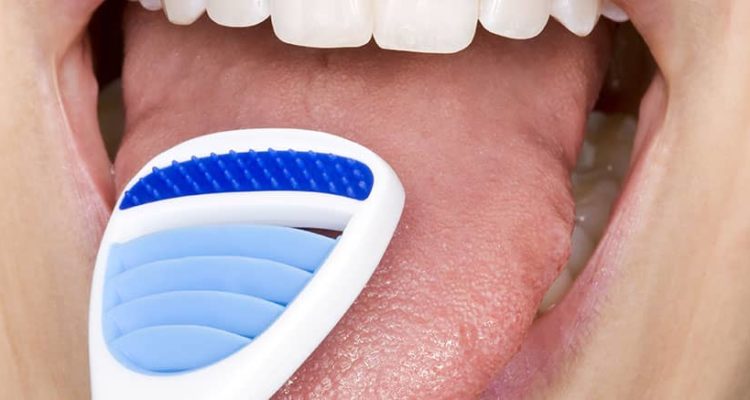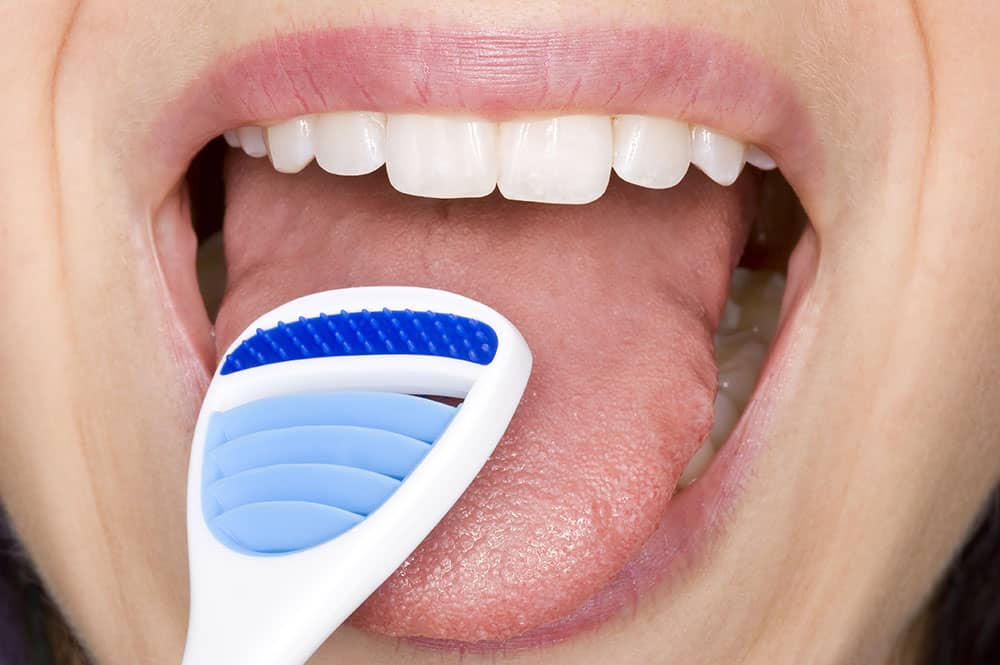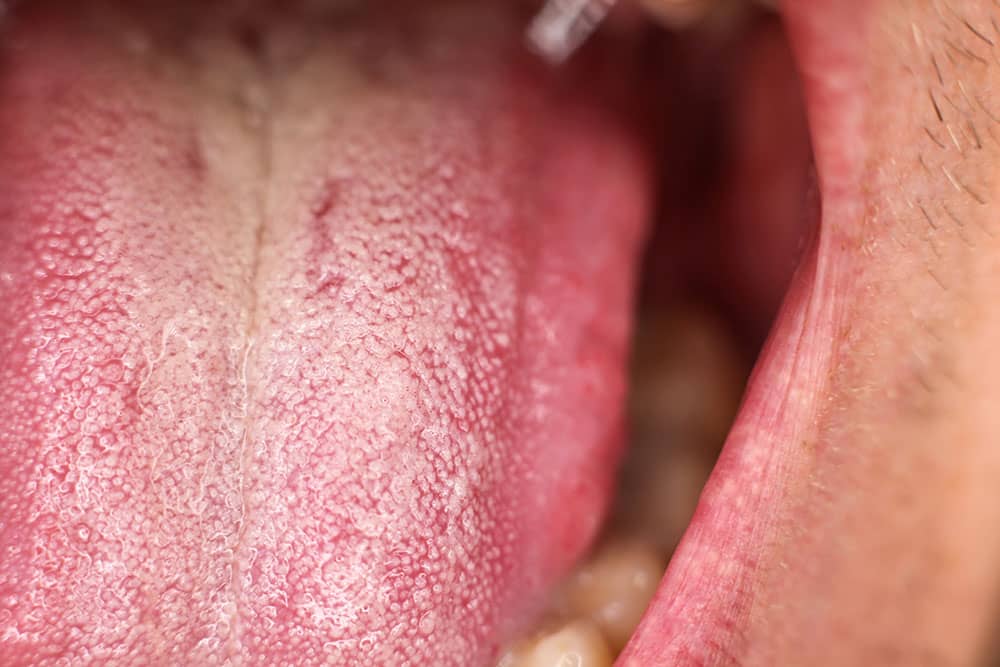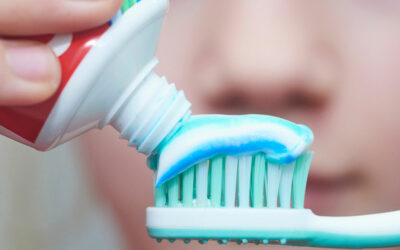You brush your teeth twice a day, floss every day, and maybe use a mouthwash as well. But do you remember to take care of your tongue? Many people forget that the tongue is an important part of good oral hygiene and may even give you clues to your overall health.
Why Is It Important to Take Care of Your Tongue?
A variety of health issues can affect the tongue or indicate other underlying health problems including:
- Halitosis (chronic bad breath)
- Gum disease
- Cancer
- Eating difficulties
- Fungal infection (thrush)
What Does a Healthy Tongue Look Like?
A healthy tongue is usually pinkish in colour with tiny bumps — papillae — covering its surface. These papillae contain an average of 9,000 taste buds to help us taste the difference between varying flavours such as bitter, salty, sour, and sweet.
What Are the Signs of An Unhealthy Tongue?
It is important to check with your healthcare provider if you notice your tongue is:
- Sore
- Swollen
- Has an unusual colour
- Has an unusual pattern
- Has an odd sensation
- Any other changes in its feel or appearance
These signs may be indicative of an underlying health issue.
The Importance of Routine Oral Health Check Ups
Routine oral health checkups aren’t just for your teeth — we check your tongue too! A tongue examination is important as it can give clues into overall health.
Here are some of the clues the tongue can offer:
- A tongue that is larger than normal (macroglossia) may be a contributing factor in snoring and sleep-apnea related issues as it blocks the correct passage of air
- Bite marks on the sides of the tongue can indicate teeth-grinding or chewing issues
- A change in colour may point to a vitamin deficiency, poor lifestyle choices (excessive alcohol consumption or smoking), or irritation
- Tongue pain could indicate anemia, diabetes, inflamed tastebuds, and more
Any concerns or changes in your tongue should always be discussed with your practitioner.
What Are Some of the Conditions Involving the Tongue?
Here are some of the possible conditions of the tongue. As always, any changes in your tongue’s appearance, function, or feel should be discussed with your practitioner.
- White TongueAs suggested by the name, this condition is when the tongue loses its regular pinkish colour and takes on a whitish appearance. This white coating usually results from swelling of the papillae, leading to trapped bacteria, dead cells, and food. This often results in bad breath.
- Black Hairy TongueAgain, the name gives a clue to this rare condition, often characterised by a black coating on the tongue. The coating can also appear green, white, dark yellow, or brown in colour.It results from a buildup of dead skin cells that cause the papillae to lengthen. This traps excess bacteria and results in long, hair-like projections that become stained by food, tobacco, coffee, black tea, bacteria, and other substances.
This is usually a result of lifestyle habits such as smoking, the use of certain antibiotics, or poor oral hygiene.
- Strawberry TongueStrawberry tongue is the appearance of a bright red, bumpy, swollen tongue and almost always indicates an underlying health issue such as an infection or vitamin deficiency.
- Oral ThrushOral thrush is a condition where a normal fungus — candida — overgrows, leading to white patches on the tongue. Thrush can also spread to the gums, back of the throat, the roof of the mouth, and inner cheeks.One of the first signs of thrush is discomfort while eating. Other symptoms of thrush include:
- Lack of taste
- Cracks at the edges of the mouth
- Irritation or bleeding when the white spots are scraped
- Pain or burning in the mouth
- Difficulty swallowing
Oral thrush is more common in children or older adults with weakened immune systems and may indicate an underlying medical issue.
- Oral (Mouth) Cancer– Different cancers can form in the mouth, including the tongue. Smokers are among the most at risk.
How To Care For Your Tongue and Keep It Healthy
Your mouth is host to billions of bacteria at any given time. Most of these bacteria are important for oral health, but some may be the culprit behind bad breath or other issues.
A ‘coated’ tongue is an indicator of issues with fungus, food debris, bad bacteria, toxins, or dead cells that cannot be removed if only the teeth are brushed. This makes tongue scraping a crucial aspect of a healthy oral hygiene routine.
How To Do Tongue Scraping
Prevention is always best, so including tongue-cleaning in your oral hygiene routine is an excellent habit to adopt. Special U-shaped scrapers can be found online or you can use a commercial toothbrush with a tongue cleaner on the back.
Even the action of using your toothbrush bristles to gently scrub your tongue can be useful. Regardless of the tool you use, avoid vigorous scraping as this can cause ulcers and irritation.
Tips for Keeping Your Tongue Healthy
Along with keeping up with a good oral health routine that includes tongue scraping and brushing your teeth and flossing twice a day, here are some tips for keeping your tongue healthy:
- Avoid smoking
- Avoid excessive alcohol consumption
- Be sure you are drinking enough water every day
- Get regular oral health checkups
- Pay attention to your sugar consumption (bad bacteria thrive on sugar)
Wondering If Your Tongue Is Healthy?
If you have questions or concerns about your tongue, feel free to reach out to us. Our team can help you determine the best course of action and get an appointment set up if needed.








